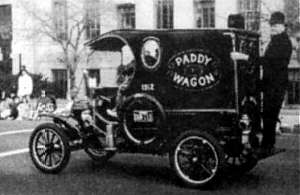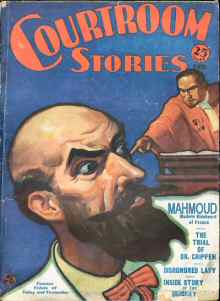On a damp, gray day in March 2004, the Dutch traffic police stopped a Belgian driver for a broken headlight and accidentally stumbled onto a major investigation of Islamic radicals.
The driver was Khalid Bouloudo, a Belgian-born baker and former Ford automobile factory worker. During a routine check, his name turned up on an Interpol watchlist, for an international arrest warrant from Morocco charging him with links to a Moroccan-based terrorist organization and involvement in suicide bombings in Casablanca in 2003.
The random arrest set into motion a cascade of events that underscores the extent of the radicalization of young Muslims throughout Europe - and a rapidly expanding and homegrown terrorist threat.
The case suggests connections to individuals and groups that have provided support to criminal and even terrorist operations in a number of other countries. This wide distribution of terrorist sympathizers and supporters has presented even small countries like Belgium with difficult law enforcement problems, forcing them to employ new investigative methods and pass tougher laws. For more than a year, the Belgian counterterrorism police had been gathering information about Bouloudo and his contacts in an investigation code-named Operation Asparagus, after the plump white asparagus grown in the eastern border area where they lived. His arrest abruptly cut short the operation.
Fearing that Bouloudo's contacts would go underground or try to flee, the counterterrorism forces started a series of raids throughout the country, dismantling over the next few months what they believe was a sophisticated network that supported the terror bombings in Casablanca and in Madrid in 2004 and that is also suspected of trying to recruit fighters for the insurgency in Iraq.
Next month, the case of the Asparagus 18, as the suspects might be called, finally goes to trial in Brussels. For the first time, Belgian prosecutors will be using an antiterrorism law that came into effect at the end of 2003 that specifically criminalizes a terrorist act and association with terrorists and imposes a prison sentence of up to 20 years.
None of the 18 men indicted - most of them Moroccan-born or of Moroccan descent and ranging in age from 24 to 42 - have been charged with committing or even plotting a specific terrorist act in Belgium.
Instead, the trial will highlight how over the past decade, Belgium has become a support center for terrorists in Europe, offering safe haven, false documents and financing.
Prosecutors hope to prove that the cell's members provided material support, including lodging and false papers, to the bombers who killed 190 in Madrid last year.
Among the other charges are the fabrication and the use of false documents, illegal entry and residence in Belgium, possession of illegal weapons and criminal association with a terrorist enterprise - in this case the Moroccan Islamic Combatant Group, or GICM, a loose-knit organization founded by Moroccans, many of whom were trained in Afghanistan before the Taliban was overthrown. Bouloudo is believed to be one of them.
"The case is a prototype of the new, post-Afghanistan network a little bit of everything: native-born radicals, immigrants from Morocco, travel to places like Saudi Arabia, connection to operations like Madrid," said Glenn Audenaert, head of Belgium's federal police force. "It's like handling a number of particles of mercury, toxic in themselves and even more toxic when they come together."
Despite a well-integrated Moroccan immigrant population that has lived and worked in Belgium for more than half a century, the country in recent years has become the destination of choice for many French-speaking immigrants who are put off by France's intrusive security and intelligence services and tougher laws.
It was in Belgium, for example, that the two Tunisian killers of Ahmed Shah Massoud, the Afghan resistance leader who was assassinated in September 2001, received logistical support. Disguised as journalists, they carried Belgian passports and had traveled to Afghanistan from Belgium.
Even defense lawyers involved in the Asparagus 18 trial acknowledge the attractiveness of Belgium as a support center for international criminal and even terrorist activity.
"Belgium has become a logistical base for these people," said Didier de Quévy, a defense lawyer who has been involved in terrorist cases in the past and is representing one of the defendants. "They have come here because the penalties have been light."
Indeed, Belgium's terrorism-fighting tools are limited, even though Brussels, as the headquarters of both the European Union and the North Atlantic Treaty Organization, is the closest Europe comes to having a Continental capital.
It has no equivalent of a Central Intelligence Agency and only a few intelligence officers work abroad. Only 50 police officers, detectives and special agents are assigned nationwide to monitor the Muslim community for potential terrorist plots.
Investigators complain that suspects in Belgium can be held for only 24 hours - compared with up to four days in France - under the vague charge of suspicion of association with criminals. And the hurdles to use intrusive investigative methods, like wiretaps, to obtain evidence in terrorist-related cases are more onerous than in many other European countries.
The wake-up call that Belgian laws against terrorism were too lax followed the case in 2003 of Nizar Trabelsi, a Tunisian former soccer professional and cocaine addict, for a plot to drive a car bomb into an American air base in northeast Belgium. Despite a confession and material evidence, prosecutors were forced to think creatively to win the maximum sentence - 10 years in prison - using, among other laws, one from 1934 that banned all private militias. If the new law had been in effect, police investigators said, Trabelsi's sentence could have been doubled.
In the Asparagus 18 case, prosecutors will be relying heavily on information gathered from foreign governments and foreign intelligence sources, a practice that defense lawyers have vowed to challenge. Wiretaps and audiovisual surveillance tapes will also be introduced as evidence, which has been unusual in the past and whose admissibility will be tested under the new law for the first time.
"The proof is very thin," said Christophe Marchand, a defense lawyer for one of the suspects. "Much of the evidence comes from statements made by people interrogated abroad."
Belgian police officers and prosecutors involved in the investigation, meanwhile, believe they have a strong case, saying that they have been stunned by the organization and discipline of the accused and the reach of their contacts abroad. The Asparagus 18 were able to take on new identities, cross borders to places like Saudi Arabia and Malaysia and avoid the police along the way.
One of the men, a 28-year-old Moroccan named Youssef Belhadj, was arrested in Belgium in 2004 and extradited to Spain this year in connection with the Madrid bombings. Some Spanish investigators are convinced that he is the person speaking in a video for a group called Al Qaeda in Europe that claimed responsibility for the Madrid attacks. He will be tried in absentia.
A 25-year-old Moroccan named Mourad Chabarou is suspected of trying to recruit insurgents for Iraq and of helping to finance and provide material support to the Madrid bombers, in particular of sheltering one of the suspected bombers. In telephone conversations monitored by wiretaps and electronic bugs for weeks by Italian authorities last year, Chabarou and an Egyptian man who claimed to have organized the Madrid bombings discuss what investigators believe was a terrorist plot to be carried out by someone currently in France.
Particularly distressing for Belgian investigators is that four of those standing trial were born and raised in Maaseik, a picturesque 13th-century Flemish-speaking town of 24,000 on Belgium's eastern border with the Netherlands, where they were also arrested.
A small Moroccan population has lived here since the 1950s, when the region needed low-cost workers for the now defunct coal mines. There are no slums here. Even the poorest area of town has clean streets and flower boxes in the windows.
The first visible sign of Islamic radicalization came in the past few years, when a handful of Muslim women began appearing in public with their faces veiled in black.
"I started received phone calls from the people of the city," recalled the mayor of Maaseik, Jan Creemers. "'There is something bizarre happening here, we see strange veiled women,' they said."
The city imposed a fine of $150 on any woman who refused to reveal her face, arguing that it was a security issue. The only woman in town who refused was the wife of Bouloudo. |
 Nine alleged members of an Al Qaeda terror cell, suspected of having recruited jihadists and prepared attacks, go on trial in Brussels Monday.
Nine alleged members of an Al Qaeda terror cell, suspected of having recruited jihadists and prepared attacks, go on trial in Brussels Monday.
 US authorities are seeking the extradition of a Tunisian, already convicted in Belgium for planning attacks, over suspected links to the al-Qaeda network, prosecutors here said.
US authorities are seeking the extradition of a Tunisian, already convicted in Belgium for planning attacks, over suspected links to the al-Qaeda network, prosecutors here said. (KUNA) -- Belgian authorities released Saturday 14 alleged terror suspects who were arrested in a raid early Friday, local media reported. According to Belgian authorities, they were allegedly planning to use force to free Tunisian
(KUNA) -- Belgian authorities released Saturday 14 alleged terror suspects who were arrested in a raid early Friday, local media reported. According to Belgian authorities, they were allegedly planning to use force to free Tunisian  Belgian police Friday arrested 14 Muslim extremists suspected of planning the jailbreak of an al-Qaida prisoner convicted of plotting a terrorist attack on U.S. air base personnel, officials said. Extra police were deployed across the capital at airports, subway stations and other public places. The U.S. Embassy warned Americans of "a heightened risk of terrorist attack in Brussels," although it had no indication of any American targets.
Belgian police Friday arrested 14 Muslim extremists suspected of planning the jailbreak of an al-Qaida prisoner convicted of plotting a terrorist attack on U.S. air base personnel, officials said. Extra police were deployed across the capital at airports, subway stations and other public places. The U.S. Embassy warned Americans of "a heightened risk of terrorist attack in Brussels," although it had no indication of any American targets. Badat, 25, agreed to board and destroy an American-bound flight from Europe three months after the September 11 2001 hijackings killed around 3,000 people in New York and Washington. But four days after he was given an explosive device in December 2001, he had a change of heart and backed out of the mission. The court was told he could not face being a "courier of death" and rejected terrorism.
Badat, 25, agreed to board and destroy an American-bound flight from Europe three months after the September 11 2001 hijackings killed around 3,000 people in New York and Washington. But four days after he was given an explosive device in December 2001, he had a change of heart and backed out of the mission. The court was told he could not face being a "courier of death" and rejected terrorism.